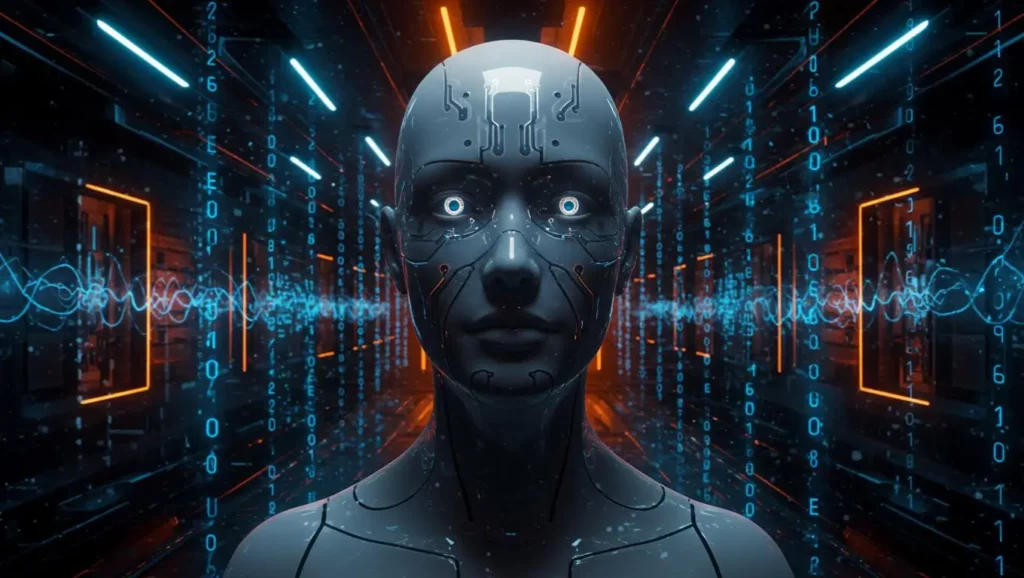What if the next revolution in artificial intelligence could finally match human intelligence? Elon Musk has rekindled this intriguing idea with a bold statement: Grok 5, the upcoming version of his AI model, could achieve artificial general intelligence (AGI).
AGI, often seen as the “holy grail” of AI research, refers to a system capable of performing any intellectual task that a human can, with the same flexibility and reasoning ability.
Today, Musk estimates the chances of success at just 10%, a low figure but one with significant implications.
This prediction has electrified the tech world, stirring both excitement and skepticism: Will Grok 5 truly push the boundaries of artificial intelligence? Or is it merely another visionary promise… possibly too ambitious?
My estimate of the probability of Grok 5 achieving AGI is now at 10% and rising
— Elon Musk (@elonmusk) October 18, 2025
The Ambition of Elon Musk with Grok 5
Musk envisions Grok 5 as an AI system capable of reaching an intellectual level comparable to that of an educated adult. Unlike current models, which are specialized in specific tasks, a general AI would be able to adapt, reason, and learn in any domain without requiring retraining.
This would represent a monumental leap for artificial intelligence: a versatile machine capable of solving complex problems across various disciplines.
However, as many experts acknowledge, the path to AGI is long and fraught with challenges.
Grok 4: The Foundations of a Revolution
Before Grok 5, its predecessor Grok 4 laid solid groundwork by ranking among the best on the ARC AGI2 leaderboard, a benchmark for human reasoning.
Its strengths include excellent performance in text logic and problem-solving.
However, its limitations are:
- Long-term memory: Incapable of retaining information over time.
- Continual learning: Needs retraining to incorporate new data.
- Multimodal reasoning: Struggles to combine text, images, sound, and context in a single analysis.
While there have been notable advancements, we are still far from the adaptive capabilities of the human brain.
The Major Challenges of AGI
Achieving general intelligence is not just about computational power; it’s a complex technical, ethical, and philosophical equation.
The main challenges are clear:
- Long-term memory: Learning from past experiences and contextualizing the future.
- Continual learning: Integrating new knowledge without starting from scratch.
- Multimodality: Unifying text, images, sound, and logical reasoning.
- Safety and alignment: Ensuring that an AI’s decisions align with human values.
These obstacles require not only technological breakthroughs but also interdisciplinary collaboration among researchers, philosophers, and regulators.
What Experts Think
Reactions to Musk’s prediction are mixed. Some are fascinated and view it as a realistic vision for the future; others, like researcher Gary Marcus, criticize what they see as excessive optimism and even proposed a bet to test its validity.
Other figures, such as Andrej Karpathy, acknowledge Grok’s advances while reminding us that current language models do not truly learn: they excel at reasoning, not understanding. The consensus is clear: AGI is not impossible, but it remains hypothetical.
The necessary advancements have yet to materialize, and the most ambitious forecasts remain speculative.
A Scientific… and Economic Challenge
Behind the quest for AGI lies a global economic race. Companies are investing billions in research and infrastructure, hoping to transform entire sectors — from healthcare to finance.
However, these investments come with significant risks:
- Uncertain profitability: Current models are costly and difficult to monetize.
- Unpredictable timeline: No one knows when (or if) AGI will become a reality.
- Total disruption: A general AI could upend markets and redefine the very notion of work.
AGI promises immense rewards, but its future remains unclear.
Grok 5: Toward a New Chapter
Grok 5 will be a crucial milestone for assessing how close we are — or aren’t — to achieving general intelligence. Even if it doesn’t reach this goal, it may provide valuable insights into enhancing memory, reasoning, and learning in AI systems.
The future is uncertain: some researchers dream of rapid breakthroughs, while others advocate for caution. Yet one thing is certain: the journey toward AGI will shape the future of technology just as much as it will that of society.
For beyond the algorithms, this quest is not merely a scientific adventure — it is a reflection on what it means to be intelligent… and what it entails to create something equally so.



